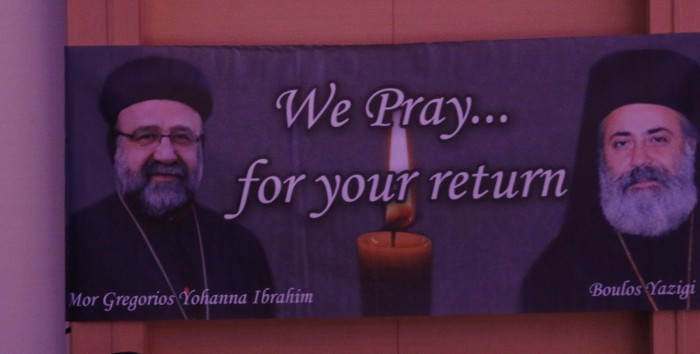29th July 2015
Remember the kidnapped in Syria


“How do you define an extremist?”. I once asked this question of a wise friend of mine, who was always critical of imprecise language used by journalists to describe people who held different views. “An extremist”, he said, “is someone incapable of seeing the good in the other. He must therefore dedicate himself to attacking and destroying all that is different from himself and which does not align with his beliefs”.
This definition came to mind as I contemplated the anniversary on 29 July of two years since the kidnapping of Father Paolo Dall’Oglio, by extremists. Father Dall’Oglio, an Italian Jesuit priest, has dedicated his life and work to Syria, his adopted country, and to dialogue between Christians and Muslims. At a time of terror, warfare, suspicion and misunderstanding, reaching out to “the good in the other” is ever more important if Syria is to be rebuilt, and if its great tradition of coexistence between the different faiths born in the Middle East is to continue. And that is why the extremists are doing their best to prevent that happening.
Kidnapping, and even killing priests who have the courage to remain at the forefront of this effort, is one of their trademarks. As we remember Paolo Dall’Oglio, we also remember Archbishop Mar Gregorios Yohanna Ibrahim, Syrian Orthodox Archbishop of Aleppo, kidnapped on 22 April 2013, and Archbishop Paul Yazigi, Greek Orthodox Metropolitan of Aleppo, seized at his side. We remember Father Michel Kayal, Armenian Catholic priest of Aleppo, kidnapped on 9 February 2013 with Father Maher Mahfouz, Greek Orthodox priest of Aleppo. And we remember Father Jacques Mourad, Prior of the Monastery of Mar Elian, kidnapped two months ago on 21 May 2015.
When asked how he remains in Aleppo despite the war, a Franciscan Father, Ibrahim Alsabagh replied that he stays in Syria “to be with the people”. His work is to help all who need his support, Christians or Muslims alike. He admits to being afraid every day, but that “my fears are overcome by the grace of God”. As he goes about his daily work of charity and giving to the most vulnerable, he asks for our prayers. And he asks not to be forgotten.
It is right that we do not forget. And we should continue to use every opportunity to call for the release of the kidnapped, alongside all others of any faith held captive in Syria because of who they are, what they believe and what they do. It is their example of dedication to the other, not that of the extremists, which will build the new Syria from the ashes of the old.
God bless and protect father Paolo and Mar Gregorios who have dedicated themselves to spreading the gospel despite the critical situation that many of us fear. The Grace of God is with them.